Student’s Right To Know
Campus Security Report
The Institute for Clinical Social Work publishes a report that discloses relevant information about campus security policies and crime statistics.
Annual Fire Safety Report
The 2021 Annual Fire Safety Report can be found here.
Diversity of Enrollment
In the Fall 2022, enrollment of students in academic programs was 119.
Retention Rates
The fall 2021 - fall 2022 retention rate of returning students was 81% overall
(92% MA students, 71% PhD students).
Graduation Rates
Gainful Employment
In accordance with the Department of Education (DOE) disclosure requirements, the following programs are eligible for Title IV financial aid:
Disability Resources and Services
Because ICSW believes academically qualified individuals with disabilities should have equal opportunity and access to a quality education, we have been actively involved in fostering an environment that encourages full participation by students with disabilities in every segment of the institution. ICSW provides a variety of services and accommodations to meet the needs of disability related concerns in accordance with the American with Disabilities Act of 1990 and Section 504 of the Rehabilitation Act of 1973, as amended.
DISABILITY SERVICES
The Institute for Clinical Social Work coordinates and provides a variety of services based the student’s individual needs. Examples of some of these services include the following:
Academic accommodations
Faculty consultation
A variety of reasonable accommodations
Contact with agencies servicing people with disabilities.
Special testing arrangements: extended time, reader or separate room
Special classroom seating
Assistance with obtaining alternate format or large print textbooks and Braille materials for the visually impaired
Information and referral
Drug and Alcohol Statement
The Institute for Clinical Social Work is committed to creating an environment for its students, faculty, and staff in which the misuse of alcohol and drugs is minimized, which encourages moderation, safety and individual accountability, and which provides an atmosphere free of coercion and peer pressure to misuse alcoholic beverages (“alcohol”), prescription medication, or use unlawful drugs. ICSW strongly supports educational and treatment programs as the most effective means to help reduce and prevent alcohol and drug abuse. At the same time, ICSW prohibits the misuse or unlawful possession or distribution of prescription medications, as well as, unlawful possession, use, or distribution of illicit drugs by students, faculty members, or staff members while participating in ICSW programs or conducting ICSW business off-premises.
Sexual Misconduct and Complaint Resolution
Sexual misconduct, including sexual discrimination, harassment, non-consensual sexual intercourse and/or contact, exploitation, and interpersonal violence such as stalking, dating violence and/or domestic violence, will not be tolerated at the Institute for Clinical Social Work (ICSW). The Institute cares deeply about the health, safety, and well-being of all members of its community and is committed to fostering a community that promotes prompt reporting of all types of sexual misconduct, the timely and equitable resolution of sexual misconduct complaints, and educational and prevention programming.
NC-SARA Complaints
SARA consumer protection provisions require the institution’s home state, through its SARA State Portal Entity, to investigate and resolve allegations of dishonest or fraudulent activity by the state’s SARA-participating institutions, including the provision of false or misleading information.
The student should begin the complaint process with the institution and if resolution is not found, the student would contact the institution’s home state SARA Portal Entity.
NC-SARA maintains a directory of SARA State Portal Entities.
Illinois Board of Higher Education (IBHE) Complaints
How to Register an Institutional Complaint with the Illinois Board of Higher Education (IBHE):
Step 1: Follow the institution's complaint procedures.
You must first make all attempts to resolve the matter directly with the institution. Check the institution's website, student handbook, and/or course catalog for information regarding the institution's complaint procedures.
In cases of criminal activity, contact the proper authorities (e.g. campus security or local police) immediately.
Step 2: Prepare to register a formal complaint with IBHE.
After you have made all attempts to resolve your issue(s) with the institution, IBHE may intercede with the identified institution depending upon pertinent laws governing agency oversight.
Some institutions are under different oversight statutes, thus limiting IBHE's authority to address complaints.
Board of Higher Education Act 1961
Private College Act 1945
Academic Degree Act 1961
Private Business and Vocational Schools Act of 2012
Gather all the documentation you have collected during your attempt to resolve the matter directly with the institution.
Step 3: Register a complaint using IBHE's Institution Complaint System.
You may register a new complaint or update an existing complaint. Providing personal information is voluntary. However, if you wish to remain anonymous, IBHE will not be able to contact you or address your formal complaint. Anonymous complaints will be reviewed, logged, and counted in IBHE reports about institutional complaints.
